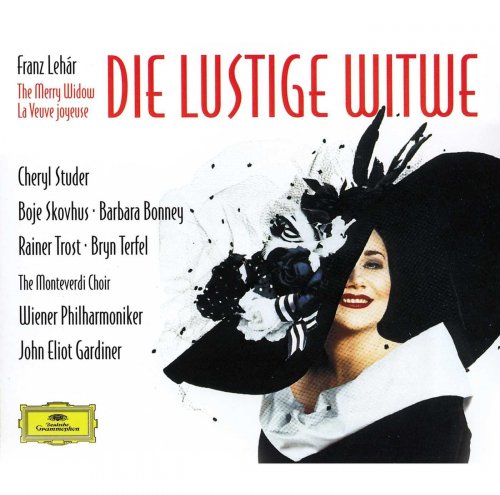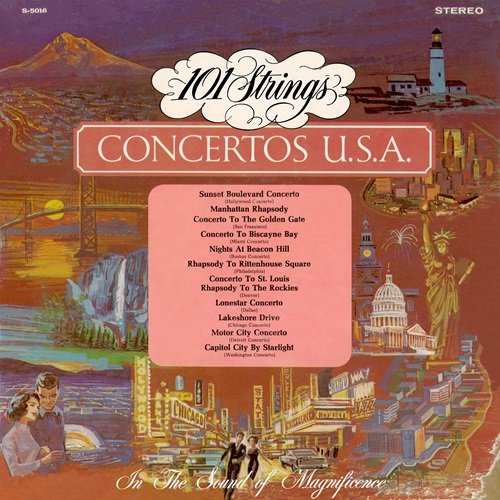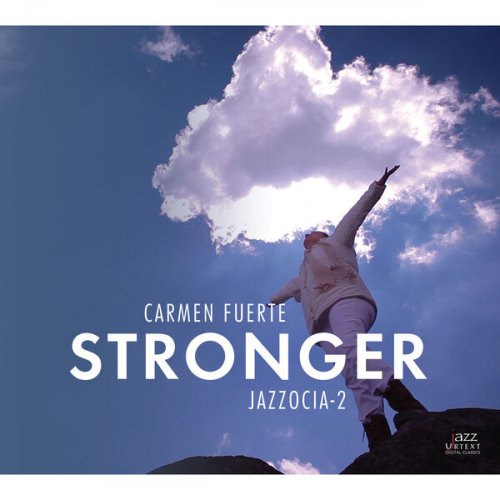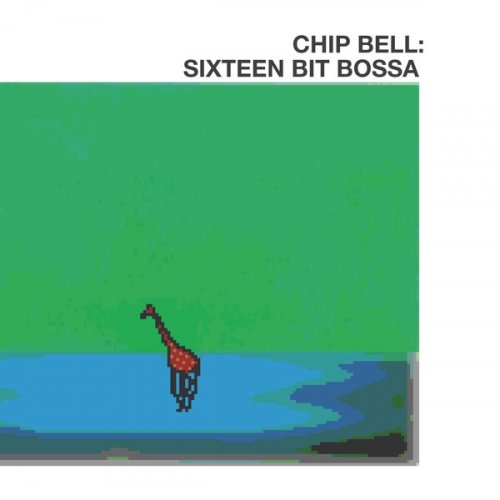The Monteverdi Choir, Vienna Philharmonic & John Eliot Gardiner - Lehár: Die Lustige Witwe (1994)

Artist: The Monteverdi Choir, Vienna Philharmonic, John Eliot Gardiner
Title: Lehár: Die Lustige Witwe
Year Of Release: 1994
Label: Deutsche Grammophon
Genre: Classical
Quality: FLAC (image + .cue, log, artwork)
Total Time: 79:46 min
Total Size: 347 MB
WebSite: Album Preview
Tracklist:Title: Lehár: Die Lustige Witwe
Year Of Release: 1994
Label: Deutsche Grammophon
Genre: Classical
Quality: FLAC (image + .cue, log, artwork)
Total Time: 79:46 min
Total Size: 347 MB
WebSite: Album Preview
First Act
01 No. 1 Introduktion "Verehrteste Damen Und Herren" (Cascada, Zeta, Valencienne, Sylviane, Olga, Praškowia, Camille, St. Brioche, Kromow, Chor) 2:53
02 No. 1a Ballmusik - Dialog: "Camille, Ich Muß Mit Ihren Sprechen!" (Valencienne, Camille, Zeta) 0:44
03 No. 2 Duett "So, Kommen Sie! 's Ist Niemand Hier!" (Valencienne, Camille) 4:06
04 Dialog: "Nun, Njegus, Haben Sie Meine Botschaft Überbracht?" (Zeta, Njegos) 0:41
05 "Achtung, Meine Herren, Die Glawari Kommt!" - No. 3 Entrée-Lied Und Ensamble - Dialog: "Was Hat Das Zu Bedeuten?" (Zeta, Njegus) - "Bitte, Meine Herr'n" - "Hab' In Paris Mich Noch Nicht Ganz So Akklimatisiert" (Hanna, Cascada, St. Brioche, Herrenchor) 3:15
06 No. 3a Ballmusik - Dialog: "Camille!" - "Ja?" (Valencienne, Camille) 0:35
07 No. 4 Auftrittslied "Also, Njegus, Hier Bin Ich, Und Wo Ist Das Vaterland?" "O Vaterland" (Danilo) 2:14
08 Dialog: "Ich Habe Schon Die Vierte Nacht Nicht Geschlafen!" (Danilo, Njegus, St. Brioche, Hanna) 1:30
09 Dialog: "Ich Bitte Sie, Lieber Freund, Es Hat Doch Keinen Zweck" (Valencienne, Camille) - No. 5 Duett "Ja, Was?" - "Ein Trautes Zimmerlein" (Camille, Valencienne) 2:26
10 Dialog: "Also, Lieber Graf, Sie Sind Mein Mann" (Zeta, Danilo) - No.6 Finale I "Damenwahl! Hört Man Rufen Rings In Saal!" (Hanna, Danilo, Cascada, St. Brioche, Eine Dame, Valencienne, Camille, Chor) 10:04
Second Act
11 No. 7 Introduktion, Tanz Und Vilja-Lied "Ich Bitte, Hier Jetzt Zu Verweulen" - "Es Lebt' Eine Vilja" (Hanna, Chor) 9:31
12 Dialog: "Gospodina, Dieses Vaterländlische Fest Könnte Nicht Vaterländischer Sein!" (Zeta, Hanna, Danilo) 0:49
13 No. 8 Duett "Heia, Mädel, Aufgeschaut" (Hanna, Danilo) 2:43
14 Dialog: Wir Werden Uns Noch Schlagen Um Die Witwe!" (St. Brioche, Cascada, Danilo, Zeta) - No. 9 Marsch-Septett "Wie Die Weiber Man Behandelt" (Danilo, Zeta, St. Brioche, Cascada, Kromow, Bogdanowitsch, Pritschitsch) 3:07
15 Dialog: "Mein Tapferer Reitersmann!" (Nahha, Danilo) - No. 10 Spielszene Und Tanzduett - Dialog: "So, Wie Die Dinge Sich Entwickeln" (Hanna, Danilo) 5:17
16 Dialog: "Nein, Nein, Nein" (Valencienne, Camille) - No. 11 Duett Und Romanze "Mein Freund! Vernunft!" - "Wie Eine Rosenknospe" (Valencienne, Camille) 6:34
17 Dialog: "Ah, Die Baronin Und Der Herr Rosillon" (Njegus, Zeta, Danilo) 1:09
18 No. 12 Finale II "Ha! Ha!" - "Wir Fragen, Was Man Von Uns Will!" (Danilo, Zeta, Hanna, Valencienne, Camille, Njegus, Sylviane, Olga, Praškowia, Bogdanowitsch, Kwomow, Pritschitsch, Chor) 11:33
Third Act
19 No. 12b Zwischenspiel - Dialog: "Also, Also, Also!" (Zeta, Njegus) 0:35
20 No. 13 Tanz-Szene 0:54
21 Dialog: "Graf Danilovitsch ..." (Njegus, Danilo) No. 14 Chanson "Ja, Wir Sind Es, Die Grisetten" (Valencienne, Lolo, Dodo, Jou-Jou, Frou-Frou, Clo-Clo, Margot, Danilo, Zeta, Bogdanovitsch, Pritschitsch, Kromow, Chor) 3:01
22 Dialog: "Exzellenz, Exzellenz, Graf, Eine Expreßdepesche!" (Ein Diener, Danilo, Zeta, Hanna) 1:04
23 No. 15 Duett - Dialog: "Aber Dort Bin Ich Zu Hause ..." - "Lippen Schweigen" (Danilo, Hanna) 3:00
24 Dialog: "Exzellenz! Exzellenz! Diesen Fächer Hat Man Im Pavillon Gefunden!" (Njegus, Valencienne, Zeta, Hanna, Danilo) 1:24
25 No. 16 Schlußgesang "Ja, Das Studium Der Weiber Ist Schwer" (Hanna, Zeta, Danilo, Valencienne, Lolo, Dodo, Jou-Jou, Frou-Frou, Clo-Clo, Margot, Kromow, Bogdanovitsch, Pritschitsch, Chor) 0:37
This is a truly great operetta interpretation.
Gardiner's approach is on an altogether more inspired plane than his rivals. In the Viennese rhythms, he shows himself utterly at home – as in the Act 2 Dance scene, where he eases the orchestra irresistibly into the famous waltz. But there are also countless instances where Gardiner provides a deliciously fresh inflexion to the score. The cast of singers is uniformly impressive. If Cheryl Studer's 'Vilja' isn't quite as assured as some others, her captivatingly playful 'Dummer, dummer Reitersmann' is typical of a well-characterised performance. As Danilo, Boje Skovhus acquits himself well with a polished performance and he offers a natural, more human characterisation than his rivals, while Barbara Bonney is superb. Not the least inspired piece of casting comes with Bryn Terfel, who transforms himself outstandingly well into the bluff Pontevedran ambassador. As for Gardiner's personally selected chorus, they make Monteverdi to Montenegro and Pontevedra seem the most natural transition in the world. DG's recorded sound has an astonishing clarity and immediacy, as in the way the piccolos shriek out at the Widow's Act 1 entrance or in the beautiful pianissimo accompaniment to the 'Vilja-Lied'. -- The Gramophone
Gardiner's approach is on an altogether more inspired plane than his rivals. In the Viennese rhythms, he shows himself utterly at home – as in the Act 2 Dance scene, where he eases the orchestra irresistibly into the famous waltz. But there are also countless instances where Gardiner provides a deliciously fresh inflexion to the score. The cast of singers is uniformly impressive. If Cheryl Studer's 'Vilja' isn't quite as assured as some others, her captivatingly playful 'Dummer, dummer Reitersmann' is typical of a well-characterised performance. As Danilo, Boje Skovhus acquits himself well with a polished performance and he offers a natural, more human characterisation than his rivals, while Barbara Bonney is superb. Not the least inspired piece of casting comes with Bryn Terfel, who transforms himself outstandingly well into the bluff Pontevedran ambassador. As for Gardiner's personally selected chorus, they make Monteverdi to Montenegro and Pontevedra seem the most natural transition in the world. DG's recorded sound has an astonishing clarity and immediacy, as in the way the piccolos shriek out at the Widow's Act 1 entrance or in the beautiful pianissimo accompaniment to the 'Vilja-Lied'. -- The Gramophone


![Martin Wind - Stars (2026) [Hi-Res] Martin Wind - Stars (2026) [Hi-Res]](https://www.dibpic.com/uploads/posts/2026-01/1769707781_cover.jpg)





